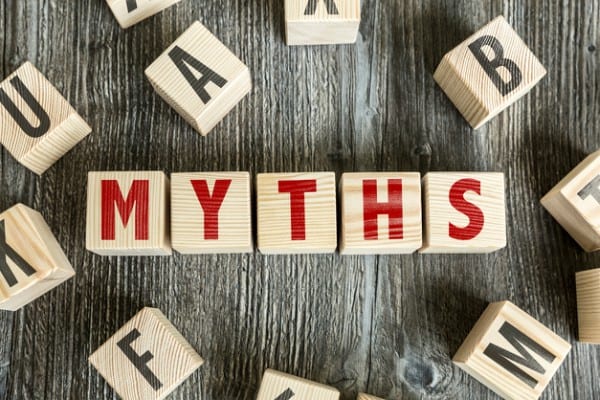
By Michelle C Madzudzo
Myths and misconceptions PAIN, uncurable and death are some of the negative words often associated with a disease that is slowly expanding in Zimbabwe and is going unnoticed. It already affects hundreds, and unless the government, the corporate world and everyone else come together and act soon, thousands more will die from cancer.
While it may be not the latest outbreak of a novel or exotic disease attracting global attention like COVID-19 at the moment, it is worth remembering and should get the priority it deserves. Let us not tire talking about cancer. With so many Zimbabweans affected by cancer, there is a lot of information — and unfortunately — misinformation available. It is now time to burst cancer myths so that Zimbabweans know the real truth about the disease, some of which may surprise you.
Myth 1: Cancer is largely genetic
Fact: This is one of the biggest myths. Did you know that only about 5-10% of cancers are hereditary. These include breast, colon, ovarian and some childhood cancers such as retinoblastoma.
The remaining 90-95% of cancers are caused by mutations that happen during a person’s lifetime as a natural result of aging and exposure to environmental factors such as tobacco smoke and radiation. Other factors which influence risk are alcohol, viruses, oral contraceptives and diet.
Myth 2: Cancer is contagious
Fact: In general no! Cancer is not a disease that spreads from one person to another. In some people, cancers may be caused by certain viruses (human papilloma virus causes cervical cancer) or bacteria (helicobacter pylori suspected to be a risk factor for stomach cancer).
- Chamisa under fire over US$120K donation
- Mavhunga puts DeMbare into Chibuku quarterfinals
- Pension funds bet on Cabora Bassa oilfields
- Councils defy govt fire tender directive
Keep Reading
While bacteria or viruses can spread from person to person, cancers sometimes cannot be spread from one person to another.
Myth 3: Cellphones cause cancer
Fact: Not according to the best researches carried so far.
Cellphones emit a type of low frequency energy that does not damage cells, because of this it’s not clear how cellphones may be able to cause cancer.
When using a cellphone, tissues of the user, that is the caller’s hands, ears, scalp and brains will absorb a part of this radiation.
The closer the tissue is to the cellphone antenna, the more radiation is absorbed but this only results in tissue heating.
However, research is still underway. In the meantime, it is better to be safe than sorry. Whether cellphone radiation causes cancer or not, exposure has been linked to sperm damage, poor sleep and impaired glucose metabolism.
So it is better to take precaution. Why risk good health by using our smartphones in not so smart ways?
Since most Zimbabweans have nomophobia (the fear of being without your phone) we need to adopt the following ways to reduce exposure to cellphone radiation:
- Text or use a bluetooth headset speakerphone instead of calling
- Turn your phone off at night
- Never have your phone in your pocket or bra
- Use a defender shieldcase to cover your phone
- Use your phone in conditions of optimum reception not in confined spaces like an elevator, basement, caravan, underground station
- Equip yourself with a mobile phone with the lowest specific absorption rate
- Use landlines to make phone calls
- Try to use your phone when you have the maximum number of bars indicating the best reception. When the signal is poor, your phone emits more radiation
Myth 4: Herbs cure cancer
Fact: To use a metaphor “just because cars sometimes crash it doesn’t mean that flying carpets are a viable flying option”.
Problems with conventional medicine don’t prove that alternative cures work.
Some studies suggest that alternative or complementary therapies including some herbs may help patients cope with the side effects of cancer treatment, but no herbal products have been shown to be effective in treating cancer.
We only hear about the success stories — what about people who have tried it and have not survived.
The dead can’t speak! In many cases it is impossible to tell whether patients have been cured or not. We know nothing about their diagnosis, stage or outlook or if they had cancer in the first place.
In fact some herbal products may be harmful when taken during chemotherapy and radiotherapy because they may interfere with how these treatments work.
Cancer patients should talk with their doctor about any alternative and complementary medicine they may be using.
Myth 5: Cancer treatment kills more than it cures
FACT: Let us be clear, cancer treatment whether surgery, chemotherapy or radiotherapy is no walk in the park. The side effects can be tough but these treatments do work.
Due to advances in radiotherapy and chemotherapy, cancer patients are now living longer.
These treatments are most effective when the diagnosed patient is treated early. Unfortunately, in Zimbabwe 80% of the patients present late when the disease is advanced and the chances of cure are very low.
Radiotherapy is very frequently given late in the course of treatment for cancer, often after the cancer has turned resistant to chemotherapy and has spread widely or when the patient is too frail to receive any other therapy. The terminal cancer will take its natural course no matter what is done. In such cases, relatives may form a misconception that radiotherapy given just before death caused the tumour to progress and the patient to die. This is untrue. Early detection and treatment saves lives.
Wrong ideas about cancer can lead to needless worry and even hinder good prevention and treatment decisions.
- Michele C Madzudzo is a radiation therapist and Talk Cancer Zim founder and president.











